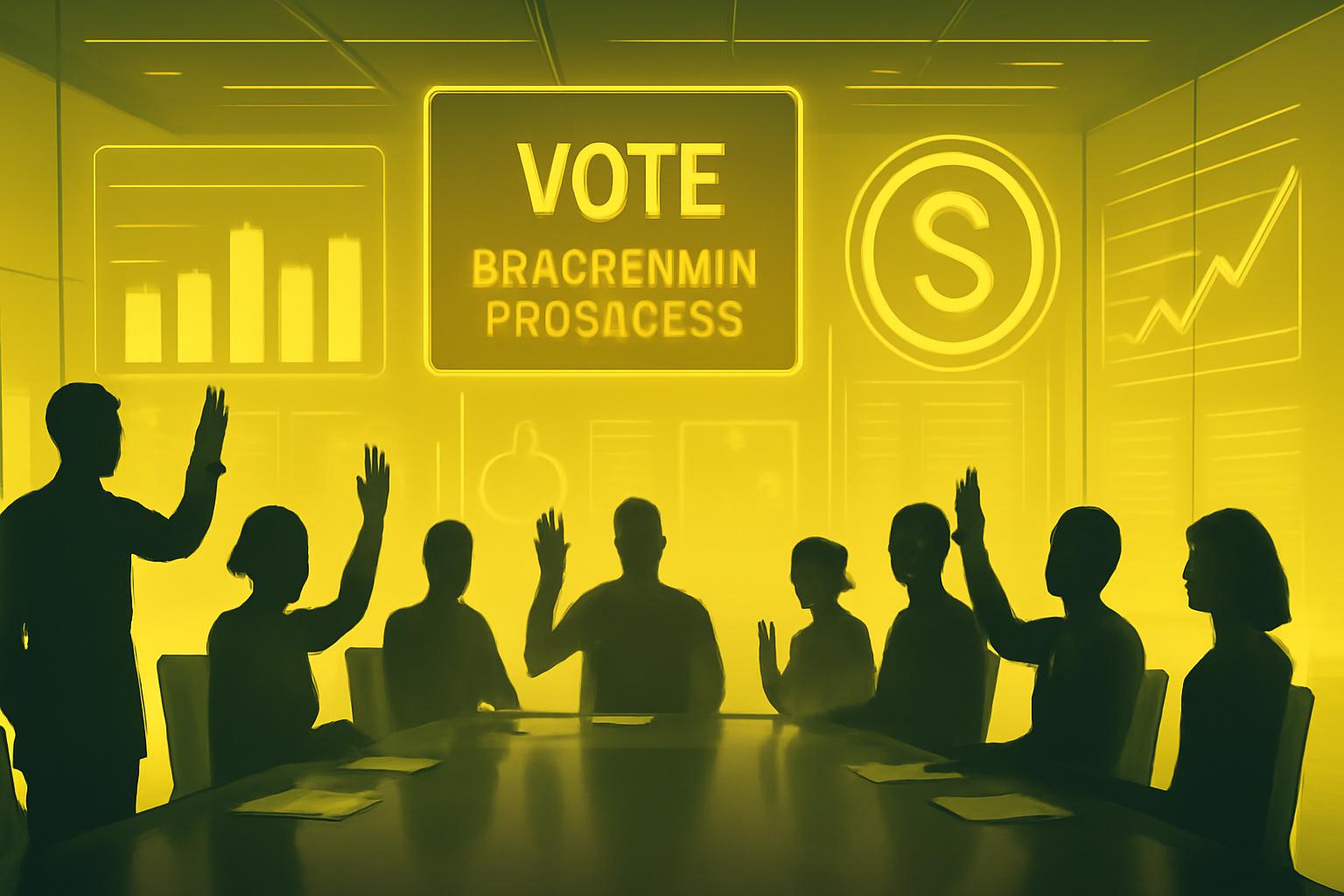OpenEden and BitGo Enter USDH Stablecoin Race as Hyperliquid Voting Commences
OpenEden, a real-world asset tokenization platform, and BitGo, a crypto infrastructure provider, have joined the competitive bidding to manage Hyperliquid’s planned native stablecoin, USDH. Their entry brings the total number of contenders to eight, including Ethena, Paxos, Frax, Agora, Native Markets, and Sky.
Hyperliquid validators commenced voting on the USDH proposals on Thursday, with the process set to conclude Sunday. The chosen bidder will oversee Hyperliquid’s stablecoin reserves, currently valued at $5.9 billion, of which 95.56% is held in USDC, according to DefiLlama.
OpenEden’s Yield-Focused Proposal
OpenEden has reserved 3% of its native EDEN token supply to incentivize participation, with potential for future increases. The USDH reserves would be held in a tokenized US Treasury Bills Fund, under the custody of The Bank of New York Mellon. The company has formed partnerships with The Bank of New York Mellon, Chainlink, AEON Pay, and Monarq Asset Management to facilitate adoption.
BitGo Emphasizes Regulatory Compliance and Asset Management
BitGo’s proposal centers on leveraging US dollar-backed liquid assets, including bank deposits and short-term treasury bills, to back USDH minting and redemption. The company plans to utilize Chainlink’s cross-chain interoperability protocol to ensure seamless operation across blockchains.
Yield from the underlying assets will be used to buy and stake HYPE tokens, with BitGo charging a 0.3% fee on total reserves. The firm underscores its regulatory credentials, highlighting licenses obtained in Dubai, Singapore, Denmark, New York, and a Markets in Crypto-Assets license from Germany.
Voting Landscape and Community Sentiment
Currently, Native Markets leads the voting with 33.73% of the delegate stake. Co-founded by community member Max Fiege, Native Markets proposes splitting reserve proceeds evenly between HYPE token buybacks and an Assistance Fund, a plan that has faced community criticism.
Notably, crypto venture investor Haseeb Qureshi has expressed skepticism about the bidding process, suggesting a possible pre-arranged outcome favoring Native Markets. However, Nansen CEO Alex Svanevik refuted these claims, stating that bidders have been encouraged to present competitive proposals.
Paxos Labs holds the second position with 11.52% of votes, while 46.49% of the voting stake remains unassigned, leaving the final decision uncertain. A Polymarket poll reflects market expectations, with 90% of participants predicting a Native Markets victory.
Other bidders include Ethena Labs and Sky (formerly Marker), which submitted their proposals earlier in the week.
FinOracleAI — Market View
The entry of OpenEden and BitGo adds depth to the USDH stablecoin bidding process by introducing distinct value propositions: OpenEden’s yield redistribution and BitGo’s regulatory compliance. While Native Markets currently leads, nearly half the votes remain undecided, maintaining uncertainty.
Risks include potential community backlash and governance disputes, particularly if allegations of pre-arranged deals persist. Observers should monitor vote shifts and any official responses from Hyperliquid validators.
Impact: neutral













